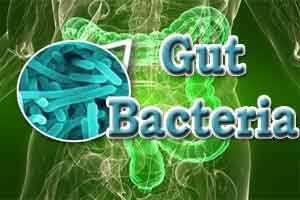- Home
- Medical news & Guidelines
- Anesthesiology
- Cardiology and CTVS
- Critical Care
- Dentistry
- Dermatology
- Diabetes and Endocrinology
- ENT
- Gastroenterology
- Medicine
- Nephrology
- Neurology
- Obstretics-Gynaecology
- Oncology
- Ophthalmology
- Orthopaedics
- Pediatrics-Neonatology
- Psychiatry
- Pulmonology
- Radiology
- Surgery
- Urology
- Laboratory Medicine
- Diet
- Nursing
- Paramedical
- Physiotherapy
- Health news
- Fact Check
- Bone Health Fact Check
- Brain Health Fact Check
- Cancer Related Fact Check
- Child Care Fact Check
- Dental and oral health fact check
- Diabetes and metabolic health fact check
- Diet and Nutrition Fact Check
- Eye and ENT Care Fact Check
- Fitness fact check
- Gut health fact check
- Heart health fact check
- Kidney health fact check
- Medical education fact check
- Men's health fact check
- Respiratory fact check
- Skin and hair care fact check
- Vaccine and Immunization fact check
- Women's health fact check
- AYUSH
- State News
- Andaman and Nicobar Islands
- Andhra Pradesh
- Arunachal Pradesh
- Assam
- Bihar
- Chandigarh
- Chattisgarh
- Dadra and Nagar Haveli
- Daman and Diu
- Delhi
- Goa
- Gujarat
- Haryana
- Himachal Pradesh
- Jammu & Kashmir
- Jharkhand
- Karnataka
- Kerala
- Ladakh
- Lakshadweep
- Madhya Pradesh
- Maharashtra
- Manipur
- Meghalaya
- Mizoram
- Nagaland
- Odisha
- Puducherry
- Punjab
- Rajasthan
- Sikkim
- Tamil Nadu
- Telangana
- Tripura
- Uttar Pradesh
- Uttrakhand
- West Bengal
- Medical Education
- Industry
Drugging Gut Bacteria Could Prevent Heart Disease-Study

NEW YORK: Confirming links between gut bacteria and heart disease, researchers have demonstrated that targeting microbes in the gut may prevent heart disease brought on by nutrients contained in a diet rich in red meat, eggs and high-fat dairy products.
"These studies demonstrate the exciting possibility that we can prevent or retard the progression of diet-induced heart diseases starting in the gut," said one of the researchers Stanley Hazen from Cleveland Clinic Lerner Research Institute in Ohio, US.
"This opens the door in the future for new types of therapies for atherosclerosis, as well as other metabolic diseases," Hazen noted.
This novel approach centers around the research team's previous discovery that TMAO -- trimethylamine N-oxide, a byproduct formed in the gut during digestion of animal fats -- is linked to atherosclerosis, a disease of the arteries characterised by the deposition of fatty material on their inner walls, and heart disease.
Now, the team has identified a naturally occurring inhibitor called DMB - found in some cold-pressed extra virgin olive oils and grape seed oils -- that reduced levels of TMAO and reduced atherosclerosis in mice.
This discovery may represent a potential new therapeutic approach for the prevention of heart disease, the researchers said.
TMAO is a gut metabolite formed during the digestion of the nutrients choline, phosphatidylcholine (lecithin) and carnitine, which are abundant in animal products.
Blood TMAO levels are associated with heightened risk of heart attacks, stroke and death in clinical studies.
Carnitine is abundant in red meat and liver, while choline and lecithin are abundant in beef, lamb, liver, egg yolk and high-fat dairy products.
The research team inhibited TMA production using DMB in mice fed a high choline or carnitine diet. The mice treated with the inhibitor had less TMAO and developed less atherosclerosis.
"We were able to show that 'drugging the microbiome' is an effective way to block this type of diet-induced heart disease. The inhibitor prevents formation of a waste product produced by gut microbes, leading to lowering of TMAO levels and prevention of diet-dependent atherosclerosis" Hazen said.
"These studies demonstrate the exciting possibility that we can prevent or retard the progression of diet-induced heart diseases starting in the gut," said one of the researchers Stanley Hazen from Cleveland Clinic Lerner Research Institute in Ohio, US.
"This opens the door in the future for new types of therapies for atherosclerosis, as well as other metabolic diseases," Hazen noted.
This novel approach centers around the research team's previous discovery that TMAO -- trimethylamine N-oxide, a byproduct formed in the gut during digestion of animal fats -- is linked to atherosclerosis, a disease of the arteries characterised by the deposition of fatty material on their inner walls, and heart disease.
Now, the team has identified a naturally occurring inhibitor called DMB - found in some cold-pressed extra virgin olive oils and grape seed oils -- that reduced levels of TMAO and reduced atherosclerosis in mice.
This discovery may represent a potential new therapeutic approach for the prevention of heart disease, the researchers said.
TMAO is a gut metabolite formed during the digestion of the nutrients choline, phosphatidylcholine (lecithin) and carnitine, which are abundant in animal products.
Blood TMAO levels are associated with heightened risk of heart attacks, stroke and death in clinical studies.
Carnitine is abundant in red meat and liver, while choline and lecithin are abundant in beef, lamb, liver, egg yolk and high-fat dairy products.
The research team inhibited TMA production using DMB in mice fed a high choline or carnitine diet. The mice treated with the inhibitor had less TMAO and developed less atherosclerosis.
"We were able to show that 'drugging the microbiome' is an effective way to block this type of diet-induced heart disease. The inhibitor prevents formation of a waste product produced by gut microbes, leading to lowering of TMAO levels and prevention of diet-dependent atherosclerosis" Hazen said.
Next Story


